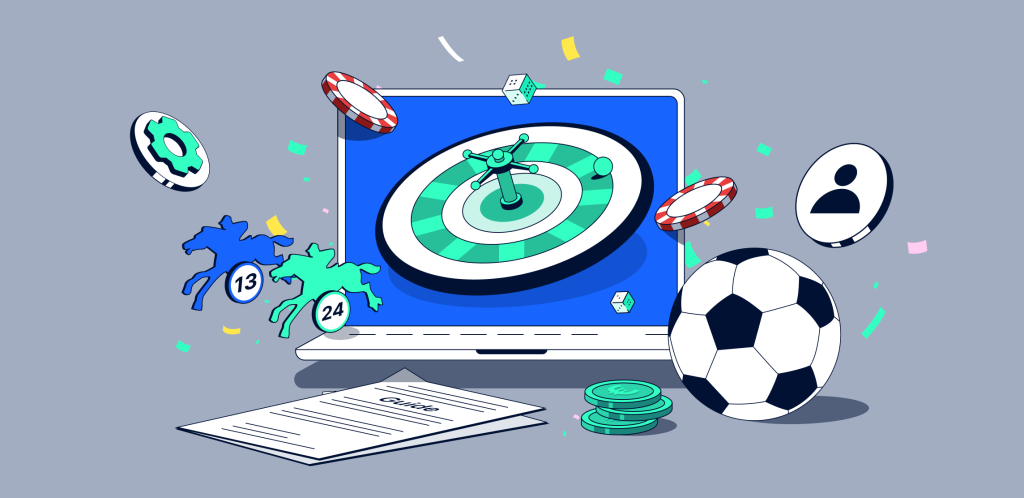Introduction to Responsible Gambling: Key Features and Importance
Gambling has become a prevalent leisure activity, especially in the internet era. Thanks to the widespread acceptance and normalization of betting practices, ensuring responsible gambling has never been more crucial. According to responsible gambling studies, the conscientious practice addresses the question, “Responsible Gambling Tools: How Effective Are They?” This practice is significant because it ensures that players enjoy gambling in a safe, controlled environment, avoiding falling into the trap of problem gambling.
The introduction of responsible gambling tools (RG Tools) into online gambling platforms offers a promising solution for promoting a healthier gambling culture. However, a more in-depth look at the overall impact of these tools on player behavior and the industry is imperative to comprehend their effectiveness fully.
Understanding the Role of Gambling Tools in Promoting Safe Betting Practices
When it comes to responsible online gambling, gambling tools play a vital role. They provide mechanisms for gambling operators and players to manage betting habits efficiently. RG tools act as a consumer protection measure, helping individuals keep their gambling in check and aiding problem gamblers in controlling their tendencies.
Effective Gambling Tools: A Comprehensive Look at Deposit Limits, Self-Exclusion Systems, and More
Responsible Gambling tools encompass several mechanisms designed to encourage safe betting habits among online gamblers. Key features include deposit limits, allowing gamblers to limit the amount of money they can deposit into their gambling accounts over a specific time period. The feature is designed as a pre-commitment strategy, deterring impulsive, high-risk behavior among players.
Another such system is self-exclusion, which allows individuals who believe they have a gambling problem to self-exclude from gambling activities. This can range from a short period to a long-term exclusion, helping to protect individuals from the adverse effects of problem gambling.
Examining the Use and Impact of Betting Limits on Player Behavior
The inclusion of deposit limits within the responsible gambling tool framework has had a discernable impact on player behavior within online gambling sites. Research by Griffiths Wood et al. reveals that deposit limit tools can play a significant role in protecting players from the detrimental consequences of excessive gambling. The study suggests that these limits help players realize the importance of spending within their means, reducing instances of problem gambling.
Safe Online Casino Experiences: Intervention Programs and Financial Controls
Online casino platforms are responsible to their consumers to provide safe betting environments. Intervention programs and strategies for responsible gaming play a considerable role in this, all while ensuring the integrity of the gambling industry. These routines include employing deposit and loss limit features, among other responsible gambling tools.
Such systems serve to prevent problem gambling and provide a level of financial control that safeguards the user from potential gambling-related harm. In addition, gambling operators have a role in ensuring responsible gaming practices by adhering to stringent regulatory compliance stipulations.
Insight into Regulatory Compliance and Risk Management in Online Gambling
Regulatory compliance and risk management in online gambling cannot be overstated. They are integral to ensuring a safe and secure betting environment. Compliance with gambling data protective laws ensures that player information remains secure, and risk management tools like set limits systems and self-exclusion tools provide a structure for gamblers to wager responsibly.
Gambling Addiction Prevention: The Importance of Ethical Gambling Practices
Gambling may bring excitement and enthralling moments, but it can also pose serious mental health risks, leading to gambling addiction. As such, ethical, responsible gambling practices play an extraordinarily vital role not just in addiction prevention but also in setting healthy gaming standards.

Implementing Cognitive Behavioral Therapy for Gamblers: An Overview
Cognitive Behavioral Therapy (CBT) is a common treatment method for problem gambling. CBT is an effective method of harm reduction – giving gamblers the tools they need to understand their gambling problems and develop strategies to manage their triggers. When combined with responsible gambling tools, CBT offers a holistic approach to addressing compulsive gambling.
The Role of Behavioral Analytics in Gaming Responsibility
Often, a gambler might not know how often or how much they gamble – leading to unseen compulsive habits. As part of the responsible gaming tools, behavioral analytics provide insight into the player’s gambling patterns, which can then be used as a reference point for intervention if unhealthy patterns are detected.
Evaluating the Potency of Digital Tools for Responsible Play
Technology has done wonders for the world, and the online gambling sphere hasn’t been left out. Integrating digital tools within gambling platforms has allowed a more comprehensive approach to encourage responsible play. Time and monetary alerts are just a few examples of these digital tools. However, their effectiveness largely hinges on how gamblers perceive them and decide to use them.
Social Responsibility in Gambling: Accountability Measures and Harm Reduction Strategies
Gambling operators bear a great deal of social responsibility. They are obliged to provide entertainment and protect their consumers by implementing effective RG tools. Accountability measures include ensuring that advertising is responsible and that there are adequate resources for players to seek help if they experience gambling problems.
Gamification for Responsible Play: Advantages and Applications
Gamification is a strategy the industry employs to maintain player engagement. This engagement in responsible play can be fostered through gamification techniques as well. For example, games that help the player gain a warning regarding their gambling habits or games that help the consumer manage their betting budget can be effective.
Conclusion: The Future of Responsible Gaming Features and Tools
The future of responsible gaming features and tools looks promising. However, continuous examination, refinement, and enhancement of these tools are critical to future success – keeping track of their effectiveness and ensuring responsible gambling stays at the forefront as the industry expands.
In conclusion, it’s clear that though RG tools are essential to responsible gambling, they require individual discipline to function effectively. Users have a part to play in implementing these tools diligently and actively trying to understand and maintain their gambling habits within safe limits.

